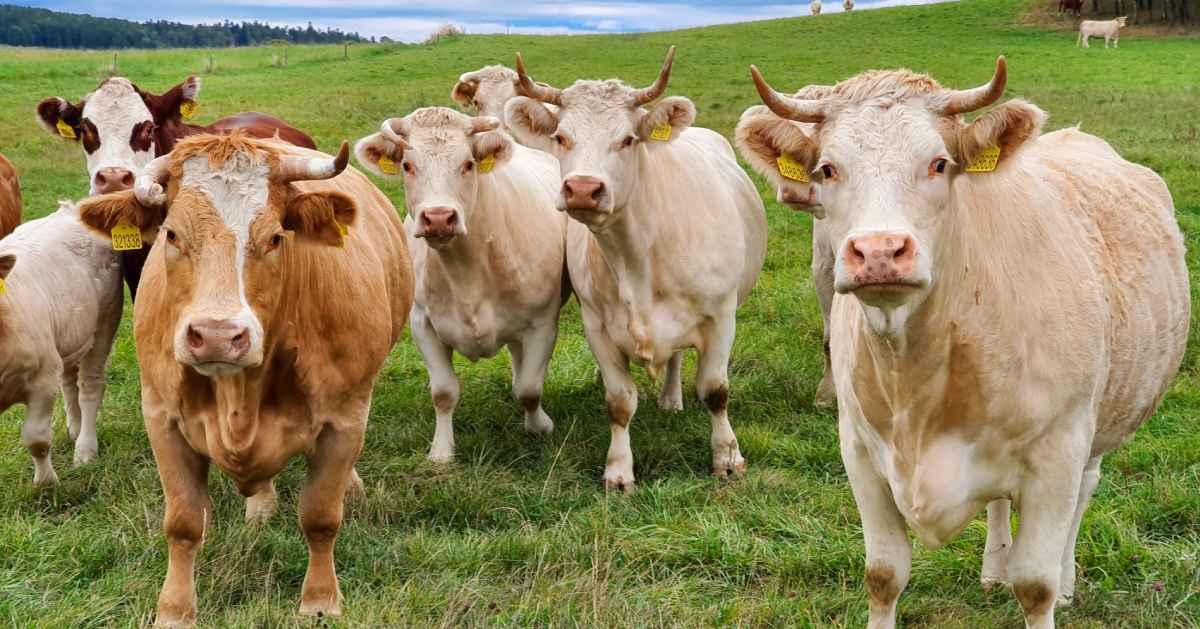Subscribe to trusted local news
In a time of both misinformation and too much information, quality journalism is more crucial than ever. By subscribing, you can help us get the story right.
- Subscription costs less than £1 a week with an annual plan.
Already a subscriber? Log in here.
10
Nov 2024
Harrogate district farmers call on government to scrap 'catastrophic' tax hike

The government’s first Budget was always going to be painful – even the Prime Minister admitted as much – but few people have complained about it more bitterly than farmers, including many in our district.
They say that a new measure announced on October 30 means that when a farmer dies, their beneficiaries are now likely to be faced with a far higher inheritance tax bill than they are able to pay – potentially forcing some farming families out of business, and off the land.
Such is the strength of feeling in the agricultural sector, the National Farmers’ Union (NFU) launched a petition the day after the Budget, calling on the government to overturn what it called the ‘family farm tax’. Within three days it had attracted 125,000 signatures, and that figure has since swelled to nearly 170,000.
John Marshall, who has a 130-acre beef cattle farm at Lingerfield, just north of Knaresborough, said:
It’s a huge factor in people’s minds – it's all farmers are talking about.
One of the tax changes seen by the NFU as most problematic is a new £1 million cap on Agricultural Property Relief. This means that from April 2026, the first £1 million of a farm’s combined business and agricultural assets will attract no inheritance tax at all – as before – but assets over £1 million, which were previously exempt, will be liable for inheritance tax of 20%, which is half the usual rate.
Mr Marshall told the Stray Ferret:
I just don’t believe the government has taken into account the value of machinery and livestock, as well as property.
A farmer could easily have a property worth £3 million and then machinery and livestock worth another £1 million – so you’re talking about £4 million. For somebody in that position, these changes will be catastrophic.
Ordinarily, the farm would pass down the line from one generation to the next, but these changes are going to make that far more difficult.
One Harrogate hill farmer we spoke to, who preferred not to be named, said:
The wrong people have been targeted. We believe they were targeting the wealthy gentleman farmers, who can afford it, but this will hit small family farms.
Farming families tend to be asset-rich and cash-poor, so they shouldn’t be taxed like this.
A lot of hill farms make less than £10,000 a year, if they make any money at all. We’re not looking at the profit margin – we're happy just to make a living. It’s a way of life.
The tax change comes after years of challenges for cash-strapped farmers, who have faced a worsening economic situation, more red tape since Brexit, increased competition resulting from free-trade deals, and a changing climate, among others.
The hill farmer said:
When Russia invaded Ukraine, feed corn prices for livestock doubled overnight. So we’re governed by everything else that’s going on in the world – it's already a tough industry to be in.
Asked why farmers should be taxed differently from any other business, Mr Marshall said:
Agricultural property relief has enabled farmers to produce affordable food. But if these people want farmers to pay inheritance tax, the price of food will go up – or there’ll just be no more UK farmers.
If farms have to sell off bits of land to pay inheritance tax bills, it will completely change the face of UK agriculture.
It’s probably designed to prevent big firms from amassing huge properties, but it will just open the market up to big firms buying up land for solar farms, instead of producing food.
The hill farmer said the new tax burden would inevitably lead to some families having to sell up. She said she feared their farms would either be bought by wealthy or corporate farmers, or they would go to waste, because ordinary farmers don’t usually have the money to buy up other farms.
She said:
You’ll lose your family farms, and what a lot of people don’t realise is that without us, the countryside would look very different. We’re the people who put food in the supermarkets.
NFU President Tom Bradshaw said the measure would lead to rises in food prices. He said:
This Budget not only threatens family farms but will also make producing food more expensive. This means more cost for farmers who simply cannot absorb it, and it will have to be borne by someone.
Farmers are down to the bone and gristle, who is going to carry these costs?
At Prime Minister’s Questions in the House of Commons this week, Sir Kier Starmer insisted that the “vast, vast majority of farmers” would be unaffected by the measure.
But Tom Gordon, the Liberal Democrat MP for Harrogate and Knaresborough, has pointed out that the government has previously said that 27% of farms will be affected by the changes, a proportion which when applied to his constituency means 36 farms will be affected.
Calling on the government to "reverse course immediately”, he said:
The new government’s tax hike is yet another blow for farmers, who will find it harder to pass their farms on to the next generation. This tax will make it even harder for young people to follow in the footsteps of their parents and get into farming.
0